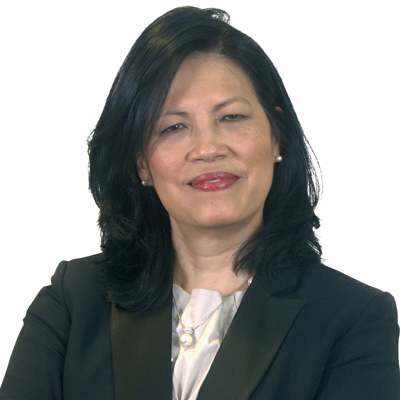
Tina Sandri took the helm of Forrest Hills of D.C. in May 2020, during what some might consider the scariest period of the pandemic. She worked 18-hour days behind the scenes, following advice to lay low and preserve personal protective equipment for her 200 front-line employees.
Nearly a year later, she had to convince that same staff — nearly half of which initially declined the vaccine — to get their doses.
Sandri didn’t mandate the shot or try to bribe employees. Instead, she focused on educational messaging tailored to various cultures and learning styles.
As of early May, 86% of her workforce was inoculated, a sharp turnaround that garnered her national recognition for hitting the high mark.
“My particular style of leadership is to engage at a very personal level,” Sandri says. She tries to model that personability to the staff, which she hopes will result in even better care.
You might say that Sandri has been in the long-term care field for most of her life.
As a teenager, she took an administrative internship at a nursing home to appease her father, who preferred that she study medicine.
Although her friends “wanted to know why I was hanging out in a nursing home,” it would become her life’s work.
Healthcare consultant Dave Dowling, who has worked alongside Sandri in various capacities, recalls first encountering her during a supply chain meeting six years ago.
“She stood up in front of a room of 80 people and educated the supply chain staff about why seniors need different towels and diapers,” Dowling says.
“I was sitting with the CEO of the parent company, and the CEO [of the organization]. They both looked at me and said, ‘That woman is amazing.’”
Sandri is of Chinese descent, and she says respect for the elderly is just part of her heritage. She credits her work ethic to her mother, whom, she says, is the picture of resilience.
She also finds that her yoga practice — Sandri is a certified instructor — stretches over into her leadership.
“Look around and notice the energy of those near you,” Sandri suggests.
“Recognize that energy, as opposed to attitude or language, and spend more time with people who have positive energy.”
Sandri incorporates mindfulness exercises into staff huddles and leads guided meditations during weekly remote meetings. This does wonders for a workforce that has experienced record burnout and stress, she says.
Before COVID-19 had her working 18 hours a day, seven days a week, the mother of three devoted her own seemingly boundless energy to volunteering. Sandri has been a Boy Scouts assistant scoutmaster, Girls Scouts helper, ministry worker and PTA volunteer at her children’s high school, among other pursuits.
She’s also baked pies for homeless shelters, and made time for high-adventure canoeing, where she once spent eight days without toilet paper, soap, showers or phones, partly due to an untimely capsizing. She knows roughing it.
The latter may be a clue about why Dowling calls her a “rock star.”
“If I can survive [the wilderness], there’s a lot I can put up with,” Sandri says.
— Genevieve Diesing
Resume: 1986, Graduates cum laude from University of Maryland with bachelor’s degree in general studies; 1989, Earns master’s degree in health services administration from The George Washington University; 1991, Performs as an extra in “Silence of the Lambs” as a FBI cadet; 1992, Named one of 35 Top Young Leaders in America by the American College of Health Care Administrators; 1994, Joins Sunrise Senior Living (Maryland) as regional vice president; 2010, Joins Caroll Manor Nursing & Rehabilitation Center, part of Ascension Health Senior Living, as CEO; 2015, Founds Executive Service Impact, a leadership-development nonprofit; 2018, Joins the Army Distaff Foundation as administrator; 2019, Named Global Mentor of the Year by innovation incubator Aging2.0; May 2020, Joins Forest Hills of DC as CEO; May 2020, Elected as an at-large member of the AHCA’s Board of Governors.




